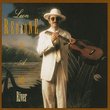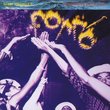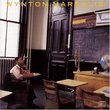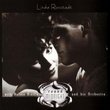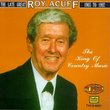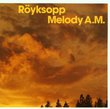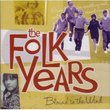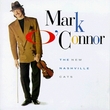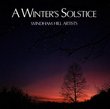| All Artists: James Mathus and His Knock-Down Society Title: Stop & Let the Devil Ride Members Wishing: 1 Total Copies: 0 Label: Fast Horse Release Date: 6/17/2003 Genres: Alternative Rock, Blues, Pop, Rock Styles: Indie & Lo-Fi, Delta Blues, Electric Blues, Modern Blues Number of Discs: 1 SwapaCD Credits: 1 UPC: 791381818024 |
Search - James Mathus and His Knock-Down Society :: Stop & Let the Devil Ride
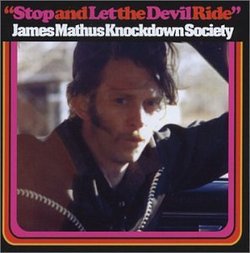 | James Mathus and His Knock-Down Society Stop & Let the Devil Ride Genres: Alternative Rock, Blues, Pop, Rock
|
Larger Image |
CD DetailsSimilarly Requested CDs
|
CD ReviewsScoot over Baby, Stop and Let the Devil Ride John Fleenor | Efland, NC United States | 06/19/2003 (5 out of 5 stars) "James (Jimbo) Mathus, probably best known as the ex-frontman of the popular hot jazz band, the Squirrel Nut Zippers, is quickly making a name for himself as one of the leading interpreters of north Mississippi hill country blues. Hill country blues is raw, electric, juke-joint boogie that entices audiences to get up and dance rather than sit and listen passively. Mathus, a native of north Mississippi, become enthralled with hill country blues during the summer of 2000 when he was working as a session musician on Buddy Guy's "Sweet Tea." Mathus was selected by producer Dennis Herring of Sweet Tea studios in Oxford, Miss. to serve as the musical director, arranger, as well as the rhythm guitarist, for the Buddy Guy sessions. In preparation for introducing hill country blues to Guy, who was unfamiliar with the genre, Mathus immersed himself in the music and held 12-hour rehearsals with the band. He was also responsible arranging the eight hill country tunes on "Sweet Tea", including Junior Kimbrough's "Done Got Old", T-Model Ford's "Look What All You Got", and Cedell Davis' "She Got the Devil in Her".After the "Sweat Tea" sessions, Mathus returned to work on his own album, "National Antiseptic." He and his producer, the legendary Jim Dickinson, decided to record three hill country songs for the album: R.L. Burnside's "Snake Drive," T-Model Ford's "Take a Ride with Me" and Lonnie Pitchford's "Drinking Antiseptic". One listen to these cuts confirms that the 12-hour days Mathus spent rehearsing hill country blues has paid off. Mathus and his band, the Knockdown Society, play an authentic brand of hard-driving, electric boogie that not only pays tribute to hill country stalwarts such as Kimbrough and Burnside, but also increases the accessibility of the music to a much wider audience. With "Stop and Let the Devil Ride", Mathus continues his exploration of hill country blues and, as is customary for him, also throws in healthy doses of country, R&B, gospel and traditional 12-bar blues, for good measure. The album is mostly stripped-down, gritty, electric blues with no extended guitar solos or horns, just the judicious use of keyboards and female backup singers. The album was recorded at Rick Miller's (Southern Culture on the Skids) studio near Chapel Hill, N.C. and mixed by Dennis Herring at Sweet Tea Studios. In addition to Mathus on guitar and vocals, "Stop and Let the Devil Ride" features veteran Knockdown Society members Stu Cole on bass and Nate Stalfa on drums, new KDS member Dave Spencer on guitar, and guest performers Luther Dickinson (North Mississippi Allstars) on guitar and Patrick "Playboy" Smith on keyboards. This time, Mathus handles the production chores himself, and creates an authentic traditional hill country sound. While Mathus was obviously influenced by Herring's production of "Sweet Tea", he avoids some of its idiosyncrasies such as the extensive use of echo and separation. The result is a sound that is as rough as "Sweet Tea", but more gritty, capturing some of the raw edge of the Knockdown Society's live shows."Stop and Let the Devil Ride" features 10 rootsy originals penned by Mathus and three interesting covers. Opening the album is a train song called "Mean Old Line." It's an edgy, hard-core blues with pulsing drums, bass and guitar that sound like a train going full-tilt down the track. With Mathus' plaintive vocals backed by an old Son House riff, "Mean Old Line" kicks the album off in full throttle.Next, Mathus covers Roosevelt "Booba" Barnes' "How Long This Must Go On" from his 1990 release, "Heartbroken Man." Barnes, who died in 1996, got his start playing the juke joints of north Mississippi. On "How Long", Mathus successfully captures Barnes' hard-rocking guitar and gutsy vocals, and offers a first-rate demonstration of hill country blues' groove-oriented, juke-joint sound.The next cut is also a cover - this time Otis Rush's 1950's classic "All Your Love (I Miss Loving)." Mathus shortens the title to "Love I Miss Love", dispenses with the vocals, and breathes new life into this calypso-flavored blues standard. "Dope Sniffing Dog" is a rollicking, North Mississippi boogie, which starts out with Mathus singing the praises of his "baby doll from Little Rock, Arkansas," and ends up with a reference to an experience he once had with airport security. The autobiographical "Never Seen Daddy," Mathus employs a Junior Kimbrough-style riff to get into a droning, hypnotic, hill country groove. The song is another great example of the raw Mississippi juke-joint sound. On "Blues Jumped A Rabbit," Mathus treats this traditional folk tune as a North Mississippi stomp with a bluesy vocal. Mathus turns R&B crooner on "Get Back to You", sounding more like Solomon Burke than R.L Burnside. With "Calvin's Boogie," Mathus gets back into the hill country boogie-groove, enticing the listener to "boogie 'til we don't know right from wrong." Cheep Champagne is a slow, nasty,12-bar blues burn with Mathus growling "my baby spends all my money on cheap champagne." This will be a great tune for slow dancing. The title cut begins with Mathus murmuring, "scoot over baby, stop and let the devil ride." It's hard electric boogie at its best, with Mathus demonstrating his flair for capturing the spirit and feeling of hill country blues. The hill country boogie-groove continues with "Stop Your Ways", which has a dirty, hard hill country beat that would feel right at home on "National Antiseptic." Mathus ends the album with "Call The Warden," a country/gospel-flavored prison dirge inspired by Charlie Patton. The cut features the anguished vocals of Mathus over a weeping slide guitar, with a drum beat that sounds suitable for marching to an execution. When asked to describe his music, Mathus explained, "I play and sing about stuff I know for fact, and one thing I know for certain is that people everywhere want to boogie." He calls "Stop and Let the Devil Ride" "a good late-night party record." I couldn't have said it better myself." Mathus Serves Up Some Down-Home Blues John Fleenor | 06/28/2003 (5 out of 5 stars) "Like a good novel or movie, Jimbo Mathus' third CD, "Stop & Let the Devil Ride," transports you to another time and place. It is near last call and Mathus and his Knockdown Society have a the crowd in a Mississippi juke-joint boogieing on a rickety plank floor under a haze of smoke and the mingled smells of fried catfish and stale, spilled beer. Mathus soaked up the music of his native Mississippi and stays as true to his roots as any living blues legend. From the infectious cover of Roosevelt Barnes' "How Long Must This Go On?" to the hypnotic sway of "Get Back to You", this CD delivers throughout and can easily be listened to over and over again. "Stop & Let the Devil Ride" is the perfect soundtrack for a keg party or cleaning the bathroom. It grows on you until it seems to follow you from the car to your home stereo, your Walkman, wherever you can get your fix for some country-fried blues. "Stop & Let the Devil Ride" should establish this former Squirrel Nut Zipper as one of the true authors of modern Mississippi blues and one who will be remembered in a long lineage of legends." Like some sort of hallucinogenic chemical acting on slow rel loce_the_wizard | Lilburn, GA USA | 08/11/2006 (5 out of 5 stars) "James Mathus and the Knockdown Society have quite a pithy little recording on their hands with "Stop and Let the Devil Ride." This is the kind of music that enters the brain and takes control like some sort of hallucinogenic chemical acting on slow release. It's not just the damn funky, fuzzy, fat guitar--though it all starts and ends here--but the whole burgoo bubbles with flavors and seasonings: evil drum and bass lines; background voices that seem to be coming from out of nowhere; slurred, mumbled lead vocal; and some guttural blues organ.
But back to that guitar, if you will: Mr. Mathus proves a force to be reckoned with, whether he is channeling traditional Delta boogie and blues or howling with a laser-like intensity, it's clear he has plenty of confidence in his material and skills. But there is no showboating, extraneous, extended, and overwrought soloing here. Rather, this is simply finely rendered blues rock, nothing fancy. Clearly, the vibe of a late, late night at some out of the way juke joint permeates matters, but there is a bit of uneasiness afoot, as if perhaps the devil might have hopped in back at that last crossroads. " |

 Track Listings (12) - Disc #1
Track Listings (12) - Disc #1